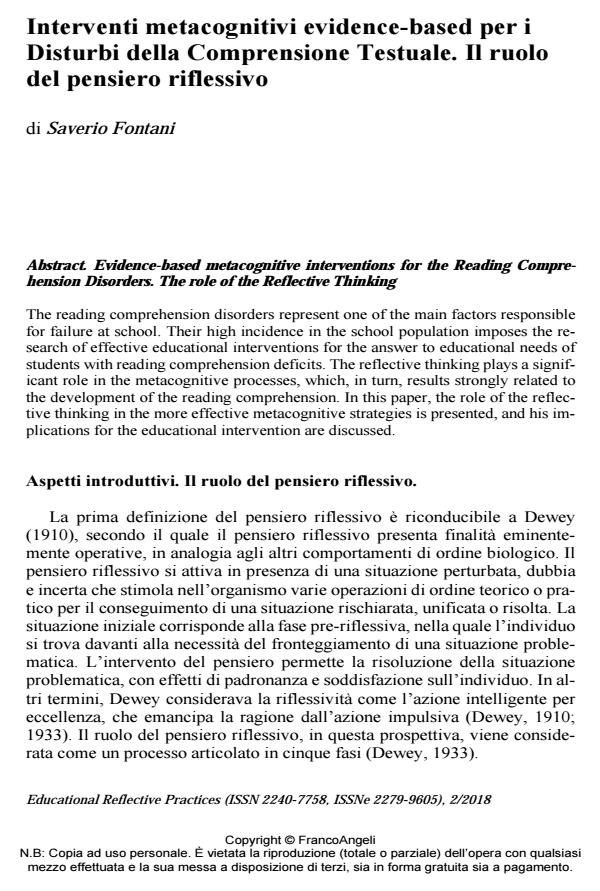Evidence-based metacognitive interventions for the Reading Compre-hension Disorders. The role of the Reflective Thinking
Journal title EDUCATIONAL REFLECTIVE PRACTICES
Author/s Saverio Fontani
Publishing Year 2019 Issue 2018/2
Language Italian Pages 14 P. 156-169 File size 206 KB
DOI 10.3280/ERP2018-002011
DOI is like a bar code for intellectual property: to have more infomation
click here
Below, you can see the article first page
If you want to buy this article in PDF format, you can do it, following the instructions to buy download credits

FrancoAngeli is member of Publishers International Linking Association, Inc (PILA), a not-for-profit association which run the CrossRef service enabling links to and from online scholarly content.
The reading comprehension disorders represent one of the main factors responsible for failure at school. Their high incidence in the school population imposes the re-search of effective educational interventions for the answer to educational needs of students with reading comprehension deficits. The reflective thinking plays a signif-icant role in the metacognitive processes, which, in turn, results strongly related to the development of the reading comprehension. In this paper, the role of the reflec-tive thinking in the more effective metacognitive strategies is presented, and his implications for the educational intervention are discussed.
Saverio Fontani, Interventi metacognitivi evidence-based per i Disturbi della Comprensione Testuale. Il ruolo del pensiero riflessivo in "EDUCATIONAL REFLECTIVE PRACTICES" 2/2018, pp 156-169, DOI: 10.3280/ERP2018-002011